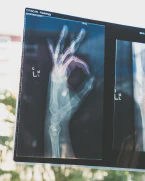Understanding Depression: Myths and Realities

The Opposite of Depression is Not Happiness, But Vitality
Depression is a serious mental health issue that affects millions of people worldwide. The symptoms of depression are well-known, including persistent feelings of sadness, loss of interest in activities, and difficulty sleeping or concentrating. But what is the opposite of depression? Many people might assume that it is happiness, but according to research, it’s actually vitality.
Vitality refers to a sense of energy, enthusiasm, and aliveness. It’s the feeling of being engaged with the world around you, feeling purposeful, and having a sense of meaning in your life. While happiness can be fleeting and tied to external circumstances, vitality is a more sustainable state of being that comes from within.
People who experience vitality tend to have a greater sense of well-being, better physical health, and improved cognitive function. They are also more resilient in the face of adversity and better able to cope with stress.
So, how do you grow vitality in your life? One way is by finding activities that you enjoy and that give you a sense of purpose. This could be anything from a hobby to a job that aligns with your values. Another way is by building social connections and relationships with others, which can provide a sense of belonging and support.
It’s important to remember that vitality isn’t something that can be achieved overnight. It requires ongoing effort and attention to grow. But by prioritizing activities and relationships that bring you joy and meaning, you can start to build a more vibrant and fulfilling life. And in doing so, you may find that depression becomes less of a struggle for you.
Depression is Braided So Deeply into Us That It Cannot Be Separated from Our Character
Depression is a complex and often misunderstood mental illness that affects millions of people worldwide. It’s not just a feeling of sadness or grief, but rather a deep and persistent state of hopelessness, helplessness, and worthlessness that can be debilitating.
For many individuals who suffer from depression, it can feel like a fundamental part of their identity, braided so deeply into their character that it cannot be separated. They may feel like depression defines them, and that it is an intrinsic part of who they are.
This is partly due to the fact that depression is a multifaceted condition that can be influenced by a wide range of factors, including genetics, biology, environment, and personal experiences. It can be challenging to pinpoint the exact cause of depression, and it can be even more difficult to find effective treatments that work for everyone.
Depression can also be a chronic condition, meaning that it can last for weeks, months, or even years. It can ebb and flow, with periods of remission followed by relapse. For individuals who suffer from chronic depression, it can be particularly challenging to separate the illness from their identity, as it can become so deeply ingrained in their daily life.
However, it’s important to remember that depression is a treatable condition, and that it does not have to define who you are. With the right support and treatment, it is possible to manage symptoms and improve overall quality of life. This may involve a combination of medication, therapy, lifestyle changes, and support from loved ones.
If you or someone you know is struggling with depression, it’s important to seek professional help and support. Remember, you are not alone, and there is hope for recovery.
Depression is More Than Just a Feeling
Many people mistakenly believe that depression is simply a matter of feeling sad or down. However, depression is much more than just a temporary emotion. It is a mental health disorder that affects the way you think, feel, and behave, and can have a significant impact on your daily life.
While it is true that feeling better can be a sign of improvement in depression, it is important to understand that depression is not just about feeling happy or content. In fact, some people with depression may not even feel sadness at all. Instead, they may experience a lack of interest in activities they once enjoyed, fatigue, difficulty sleeping or concentrating, and other physical symptoms.
Treating depression involves more than just improving your mood. It often requires a combination of therapy, medication, and lifestyle changes to address the underlying causes of the condition and improve overall wellbeing. It is important to seek professional help if you are experiencing symptoms of depression, as it is a treatable illness with a high rate of success when properly managed.
Depression is Exhausting and Silence About It Makes It Worse
Depression is a complex illness that affects millions of people around the world. One of the most difficult things about depression is how exhausting it can be. People with depression often feel like they’re carrying a heavy weight on their shoulders, and this weight can make even simple tasks seem impossible.
Moreover, silence about depression can make the situation worse. When people don’t talk about their struggles, it can create feelings of shame, isolation, and hopelessness. It’s important for those struggling with depression to know that they’re not alone and that there is help available.
Opening up to others about depression can be difficult, but it’s an important step towards recovery. Talking to someone you trust, whether it’s a friend, family member, or healthcare professional, can help you feel heard, understood, and supported. It can also help you identify and address the root causes of your depression.
In conclusion, depression is a challenging illness that can have a significant impact on a person’s life. However, it’s important to remember that depression is treatable and that there are resources available for those who need support. If you or someone you know is struggling with depression, know that you’re not alone and that there is hope for a better future.
Depression is a Serious Business and Can Lead to Actual Deadness
Depression is not just feeling sad or down; it is a serious mental illness that can affect every aspect of a person’s life. It can make even the simplest tasks seem impossible and can lead to a sense of hopelessness and despair.
It’s important to take depression seriously because it can lead to actual deadness, both physically and emotionally. People who are depressed may withdraw from activities and social interactions, leading to isolation and feelings of loneliness. This, in turn, can worsen the symptoms of depression and make it even harder to get help.
If you or someone you know is struggling with depression, it’s important to seek professional help as soon as possible. Depression is treatable, and there are many effective therapies and medications that can help. Don’t suffer in silence; reach out for support and know that you are not alone in this struggle.
The Chemical Cure and the Psychological Cure Both Have a Role to Play in Treating Depression
Depression is a complex condition that can be caused by a variety of factors. As a result, there is no one-size-fits-all solution for treating it. The chemical cure, which involves the use of medication to manage the symptoms of depression, is one approach that can be effective for many people. However, the psychological cure, which involves therapy and other forms of treatment that focus on the root causes of depression, is also an important aspect of managing the condition.
In some cases, a combination of both chemical and psychological treatments may be necessary to effectively treat depression. This is because depression can be caused by a variety of factors, including genetics, life experiences, and chemical imbalances in the brain. By using a combination of approaches, healthcare providers can work to address all of the underlying factors that may be contributing to a person’s depression.
It’s important to note that the best course of treatment for depression will vary from person to person. What works for one individual may not work for another. As a result, it’s important for individuals to work closely with their healthcare providers to develop a treatment plan that is tailored to their unique needs and circumstances.
In the end, the most important thing for individuals who are struggling with depression is to seek help. Whether it’s through medication, therapy, or a combination of approaches, there are options available that can help individuals manage their symptoms and regain their sense of wellbeing.
Depression Is Something That People Confuse with Grief and Sadness
Depression is often misunderstood and misinterpreted by many people. It is common for individuals to mistake depression for grief or sadness, but they are not the same thing. Grief and sadness are natural emotions that can be felt in response to certain situations, such as losing a loved one or experiencing a setback. Depression, on the other hand, is an ongoing mental illness that can persist even after the situation has passed.
It is important to recognize the differences between these emotions and seek help if depression is suspected. Depression can be debilitating and can negatively impact many aspects of a person’s life, including their ability to function and enjoy life. It can also lead to feelings of hopelessness, worthlessness, and even suicidal thoughts.
By understanding the distinct characteristics of depression, individuals can seek appropriate treatment and support. It is important to remember that depression is a medical condition that requires attention and care, and seeking help is a sign of strength rather than weakness.
Helping People with Depression: The Need for a Different Approach
Depression is a complex and multifaceted mental health issue that can affect people in different ways. While some may experience intense sadness, others may struggle with delusional perceptions and a distorted sense of reality. For those who fall into the latter category, a different approach to treatment is often necessary.
The speaker in this video stresses the importance of recognizing that depressive people may have delusional perceptions that need to be addressed in a unique way. This means that a one-size-fits-all approach to treatment may not be effective. Instead, it is crucial to tailor treatment to the individual and their specific needs.
One way to approach depression in a more nuanced way is through a combination of medication and therapy. While medication can help to manage symptoms, therapy can provide tools to cope with negative thought patterns and behaviors. Additionally, the support of loved ones and the involvement of a mental health professional can make a significant difference in the journey towards recovery.
It is important to remember that depression is not something that can simply be cured by a positive attitude or a change in perspective. Rather, it requires a concerted effort and a willingness to seek help. By acknowledging the unique challenges that depressive people face and providing a tailored approach to treatment, we can better support those struggling with this debilitating condition.
Conclusion
Depression is a complex and multifaceted illness that can affect anyone. It is not just a feeling of sadness or grief, but a serious medical condition that requires attention and treatment. As we have explored in this blog post, depression can be caused by a combination of biological, psychological, and social factors.
It is important to recognize the signs of depression and seek help when needed. This can include talking to a healthcare professional, reaching out to friends or family for support, and engaging in self-care activities such as exercise, mindfulness, and healthy eating habits.
While there is no one-size-fits-all solution to treating depression, a combination of chemical and psychological interventions can be effective in managing symptoms and improving overall well-being. By understanding and acknowledging the complexities of depression, we can work towards creating a more compassionate and supportive society for those who are struggling with this illness.












